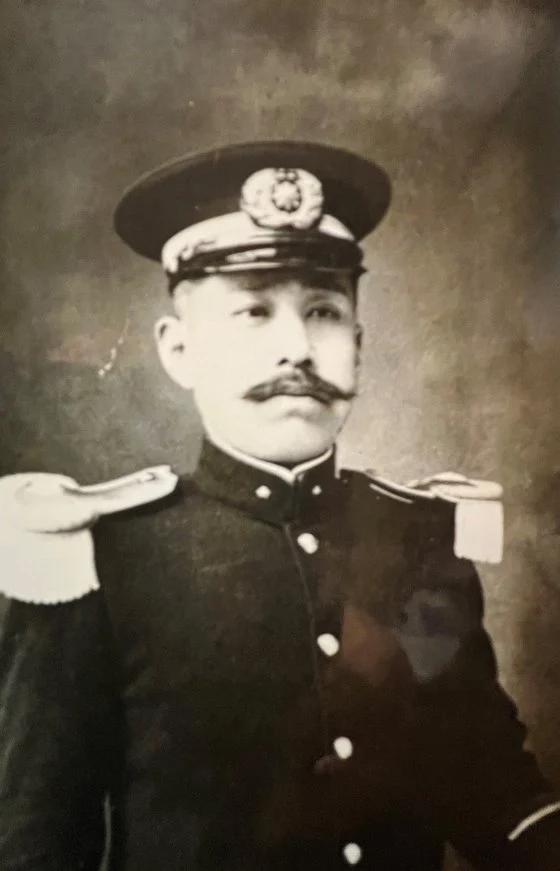
image text translation
(1)International Japan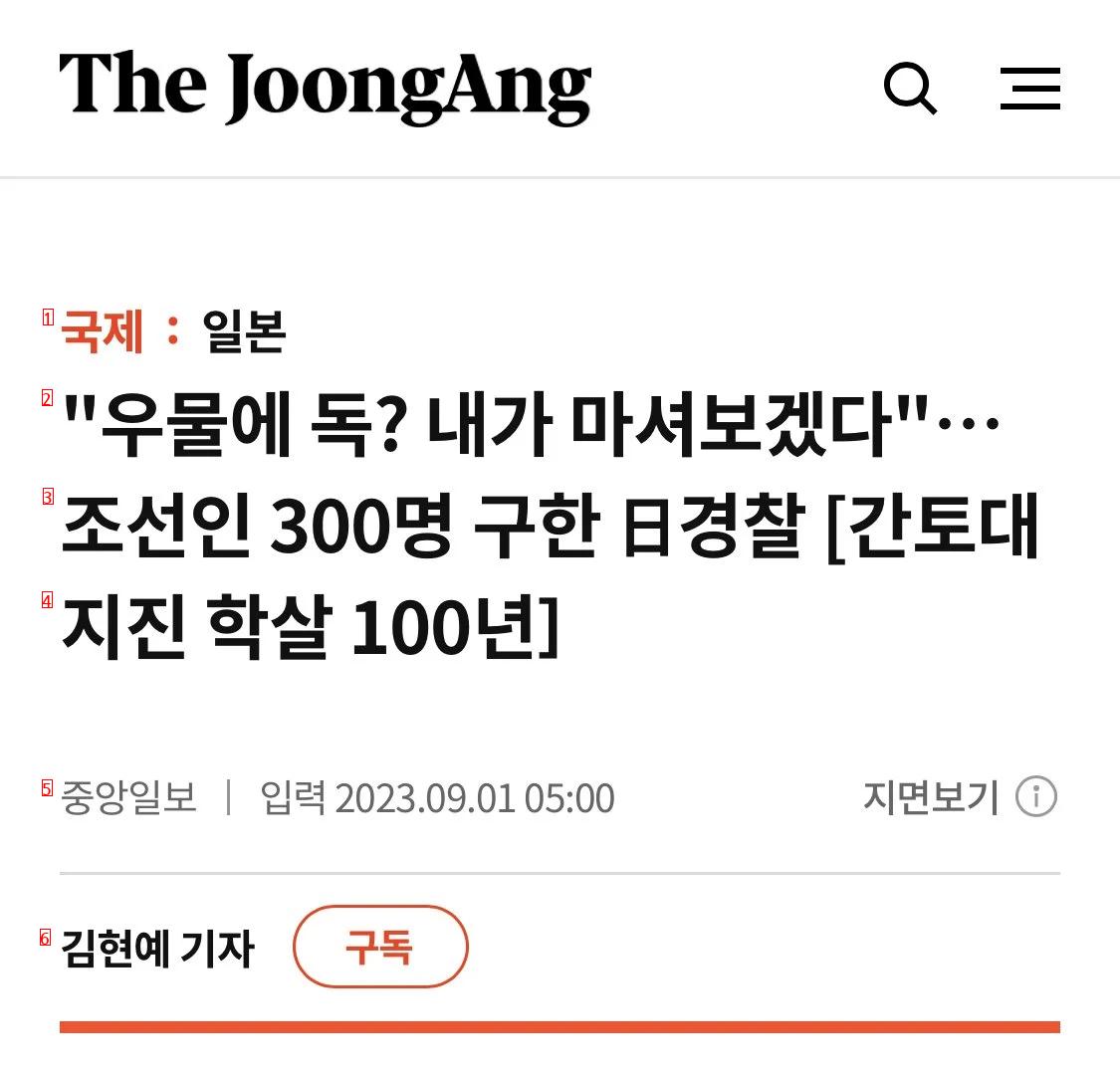
image text translation
(2)I’ll try the poison in the well
(3)Police Gantodae Saved 300 Koreans
(4)100 Years of Earthquake Massacre
(5)Enter the JoongAng Ilbo 202309010500 page view ①
(6)Reporter Kim Hyun-ye
(1)”It was my grandfather’s job, but when I interviewed him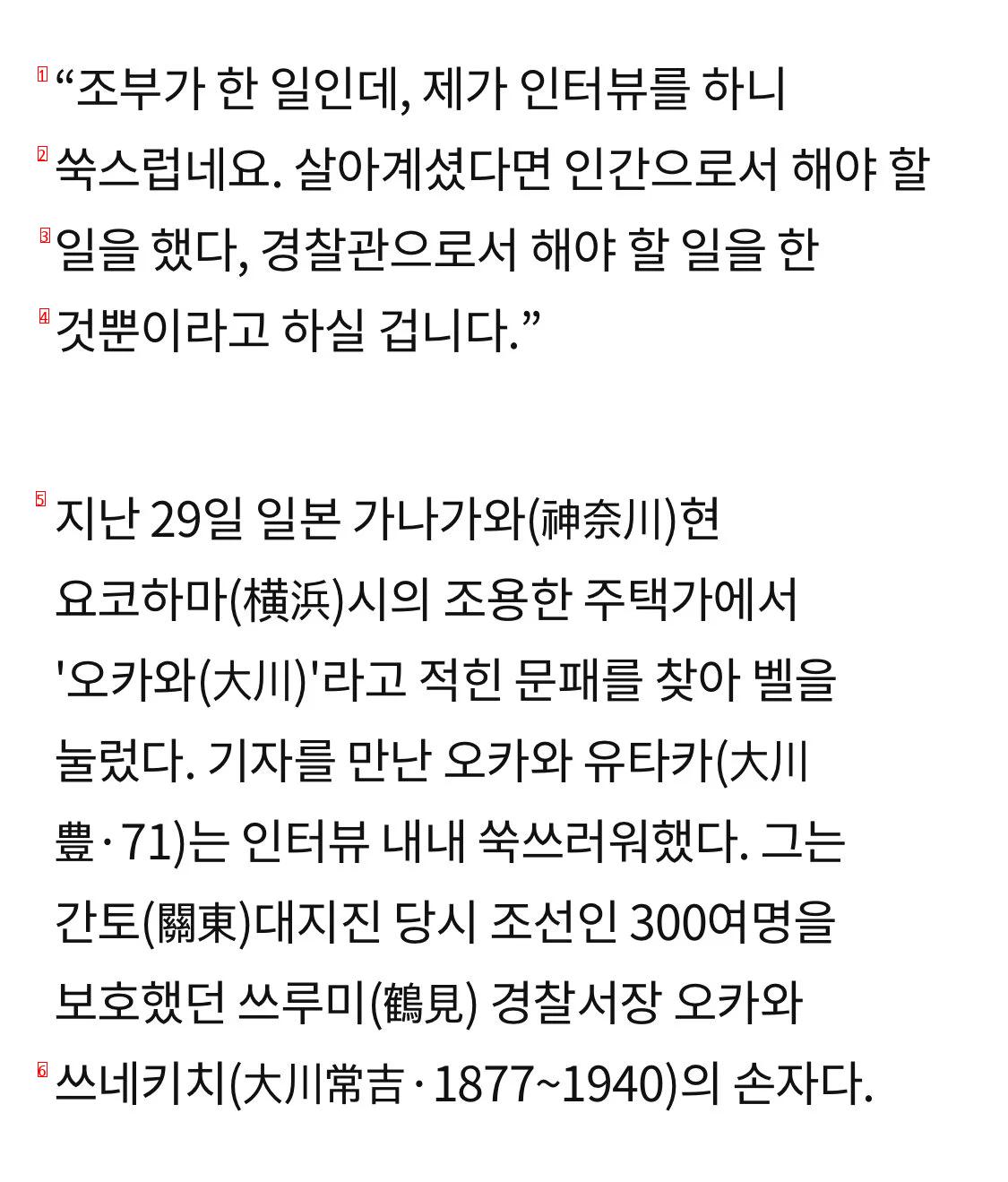
image text translation
(2)I’m embarrassed. If you were alive, you’d have to be a human
(3)I worked. I did what I had to do as a police officer
(4)You’ll say that’s all.”
(5)Yutaka Okawa, 71, who met a reporter after pressing the bell in a quiet residential area in Yokohama, Kanagawa Prefecture, Japan on the 29th, was embarrassed throughout the interview He was the chief of the Tsurumi Police Station, Okawa, who protected more than 300 Koreans during the Kanto earthquake
(6)Tsunekichi, grandson of the Great River from 1877 to 1940
(1)On the 1st, he visited the Tokyo Regional Headquarters of the Korean People’s Group in Japan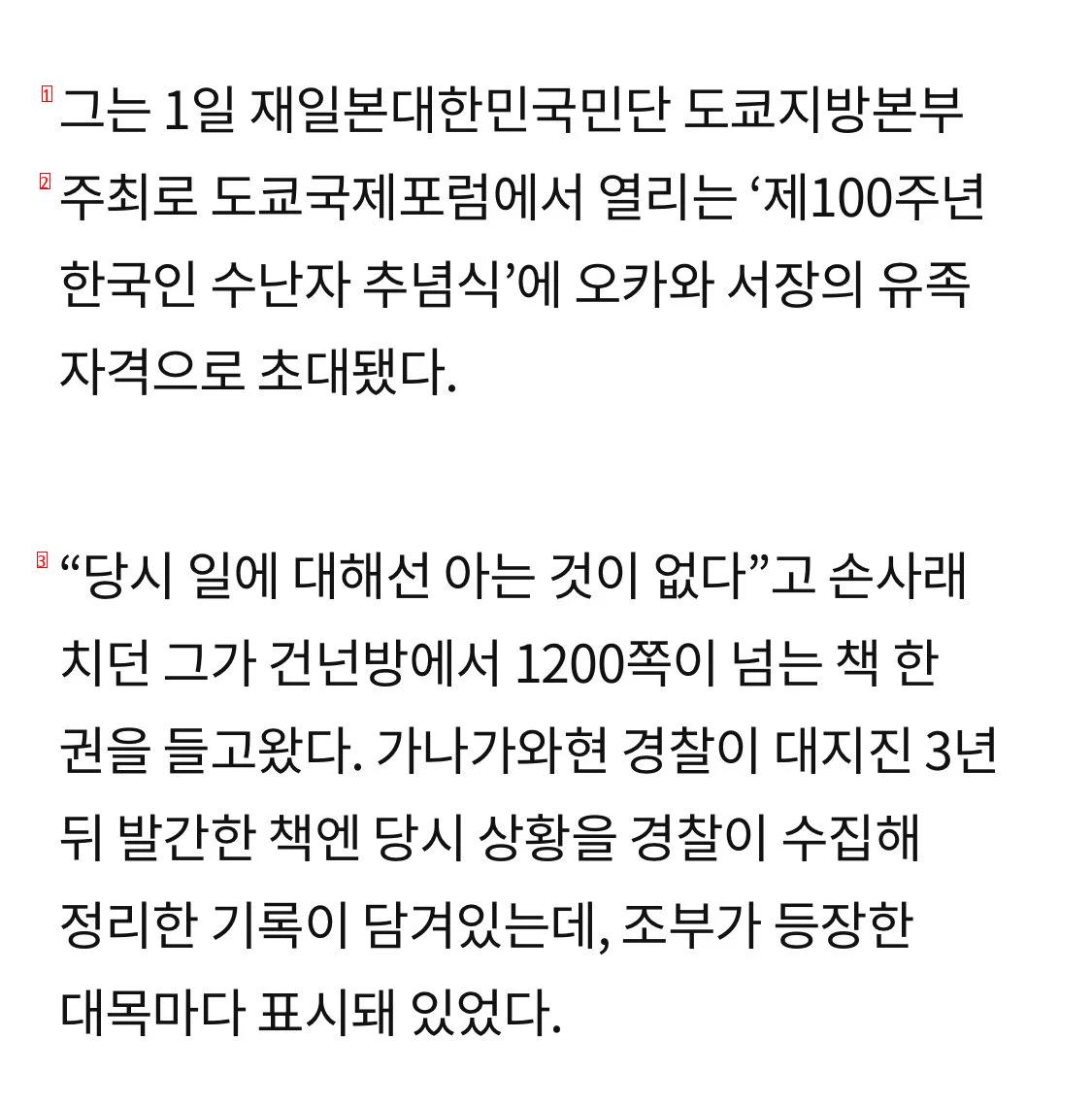
image text translation
(2)He was invited to the 100th Anniversary of Korean Sufferers’ Memorial Ceremony hosted by the Tokyo International Forum as the bereaved family of Chief Okawa
(3)”I don’t know anything about what happened at the time,” he said, bringing a book of more than 1,200 pages from the room he crossed A book published by the Kanagawa prefectural police three years after the earthquake contained a record of the police collecting and organizing the situation at the time, which was marked on every page where the grandfather appeared
(1)Kanagawa Prefecture, Japan, saved 300 Koreans during the Great Kanto Earthquake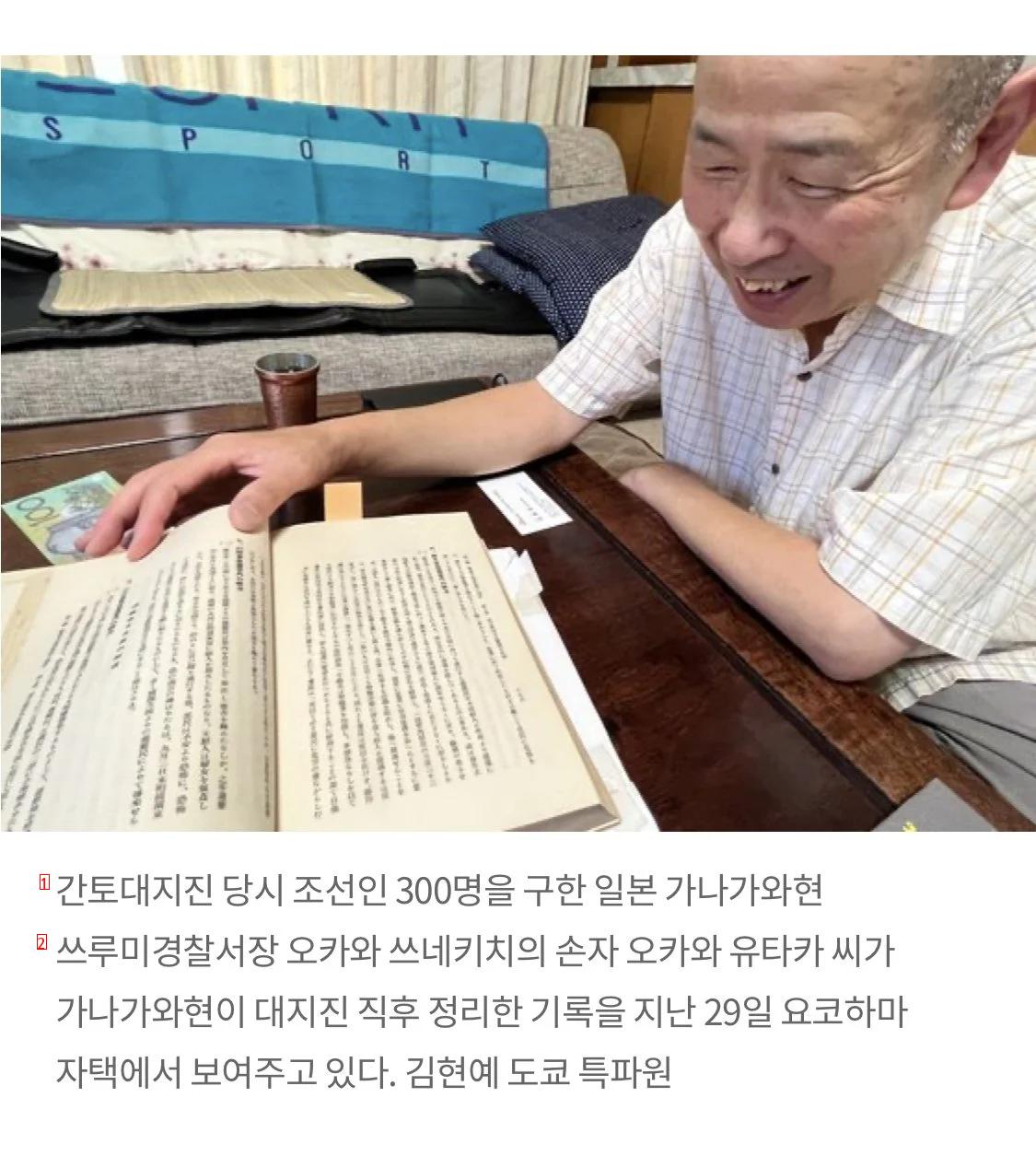
image text translation
(2)Okawa Yutaka, grandson of Tsunekichi Okawa, chief of Tsurumi Police Station, shows records compiled by Kanagawa Prefecture shortly after the earthquake at his Yokohama home on the 29th Tokyo correspondent Kim Hyun-yeh
(1)The day I saw it in Kanagawa police records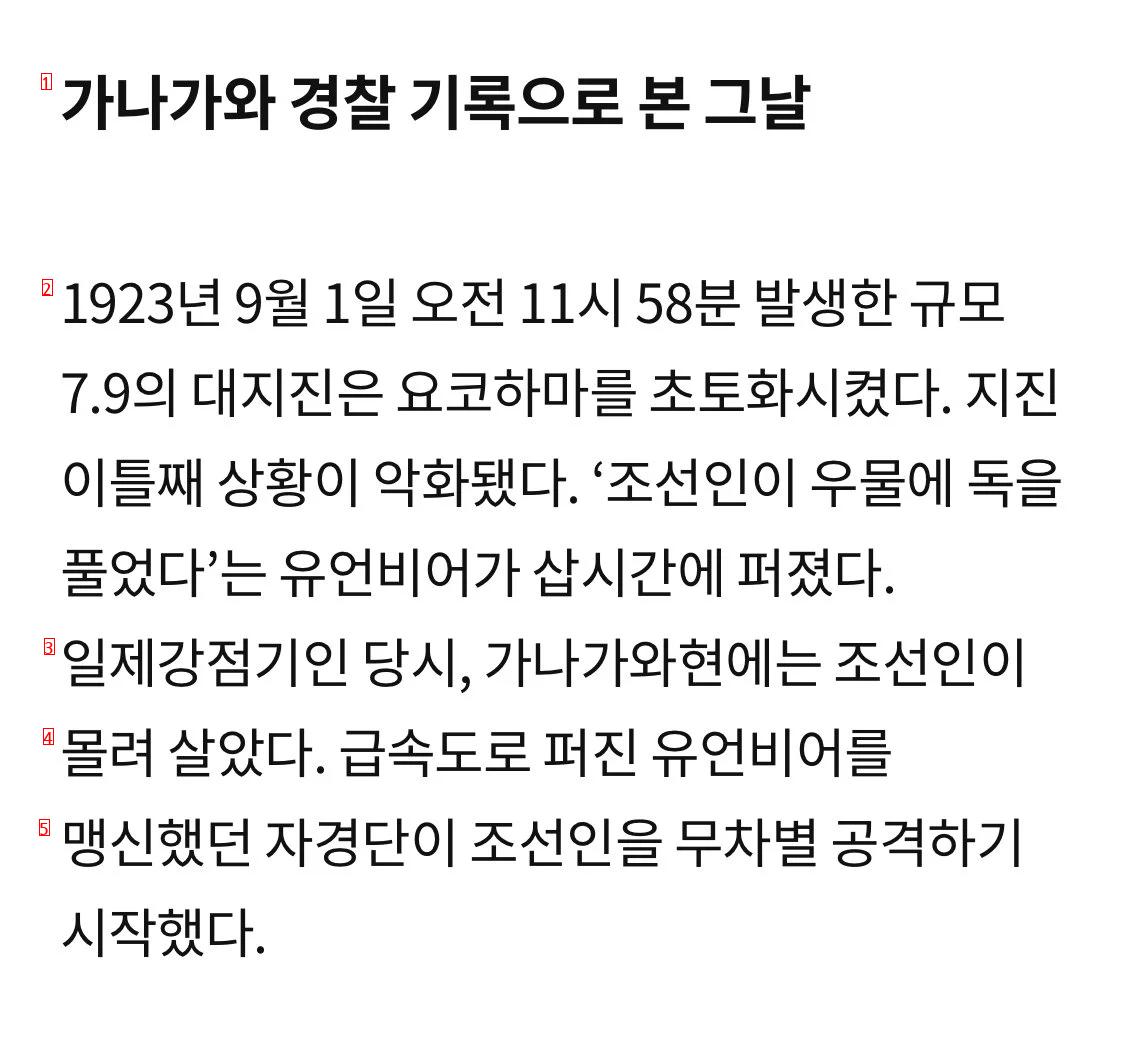
image text translation
(2)The 79-magnitude earthquake that struck Yokohama at 11:58 a.m. on September 1, 1923, devastated Yokohama Rumors spread quickly that the situation worsened for the second day of the earthquake and that Koreans had released poison in the well
(3)During the Japanese colonial period, Koreans in Kanagawa Prefecture
(4)I lived in a crowd. The rumors spread rapidly
(5)The vigilante group, which had been blind faith, began to attack the Koreans indiscriminately
(1)Chief Okawa, who was 46 years old at the time, told Tsurumi Police Station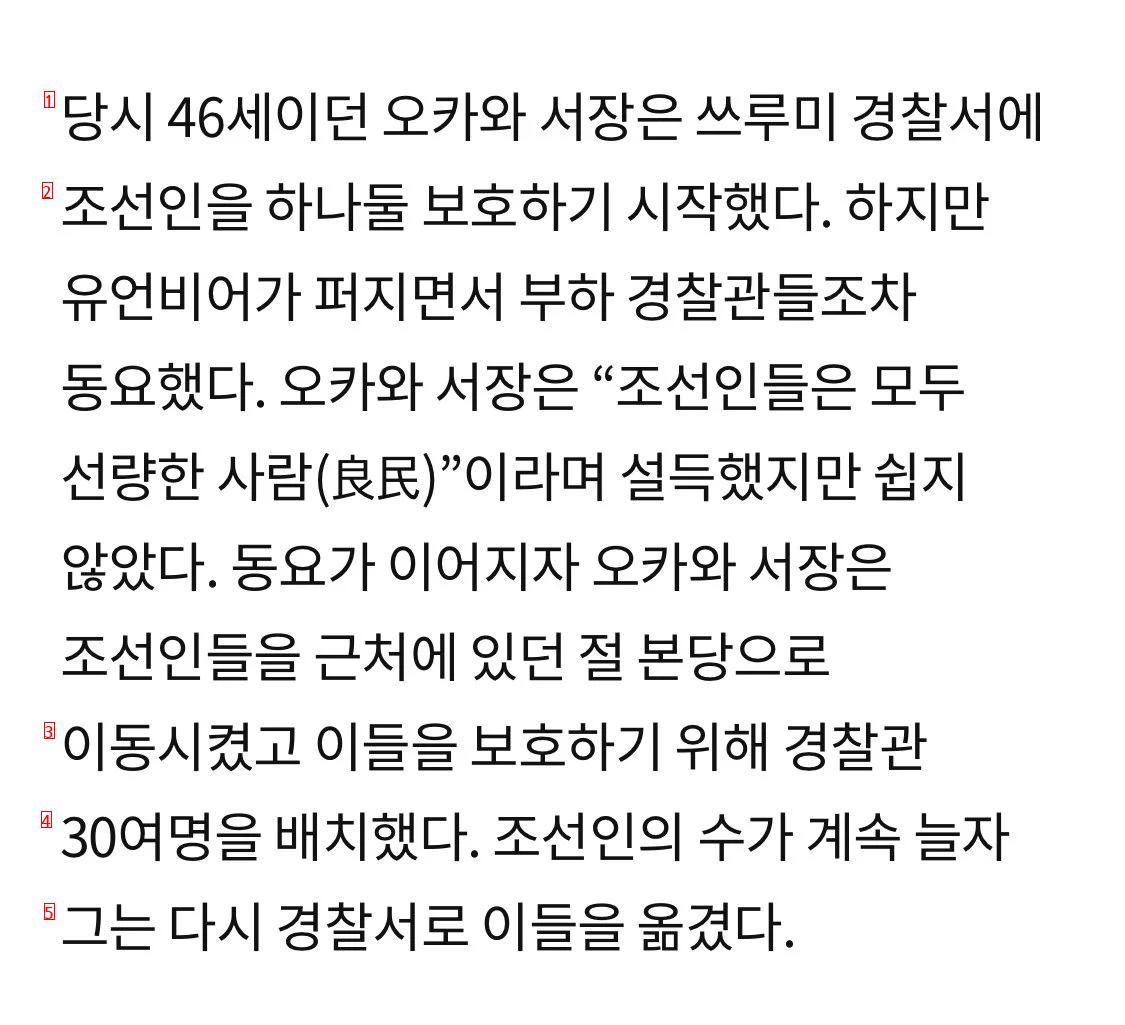
image text translation
(2)He began to protect Koreans one by one, but as rumors spread, even his subordinates were disturbed Chief Okawa persuaded, “All Koreans are good people,” but it was not easy As the agitation continued, Okawa led the Joseon people to the temple’s main hall nearby
(3)to protect them, police officers
(4)We deployed about 30 people as the number of Koreans continued to increase
(5)He moved them back to the police station
(1)Japan Saved 300 Koreans During the Great Kanto Earthquake in Tsunekichi Okawa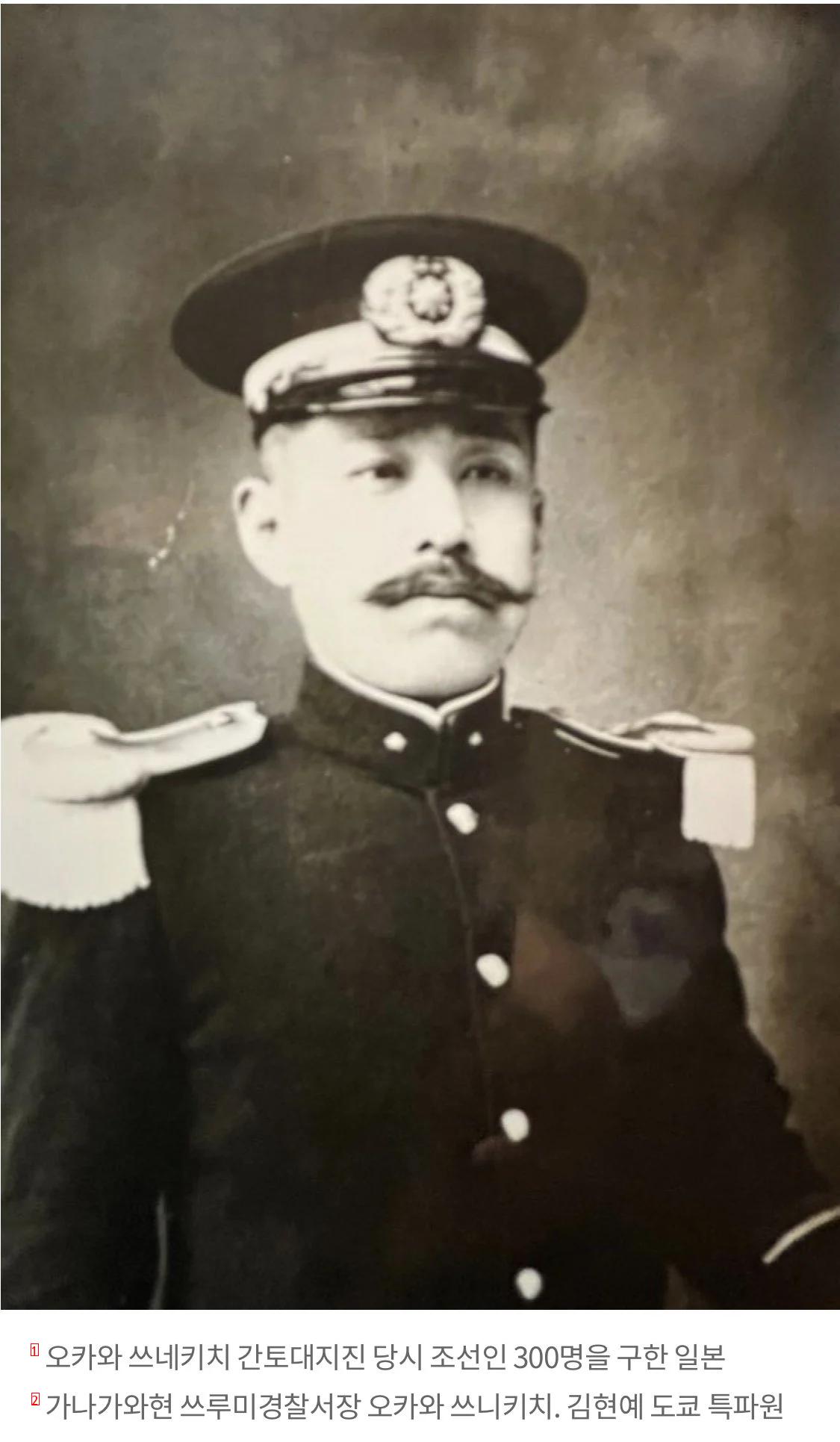
image text translation
(2)Kanagawa Prefecture Tsurumi Police Station Chief Okawa Tsunikichi Kim Hyun-ye, Tokyo Correspondent
(1)On September 3rd, the 3rd day of the earthquake, more than 1,000 people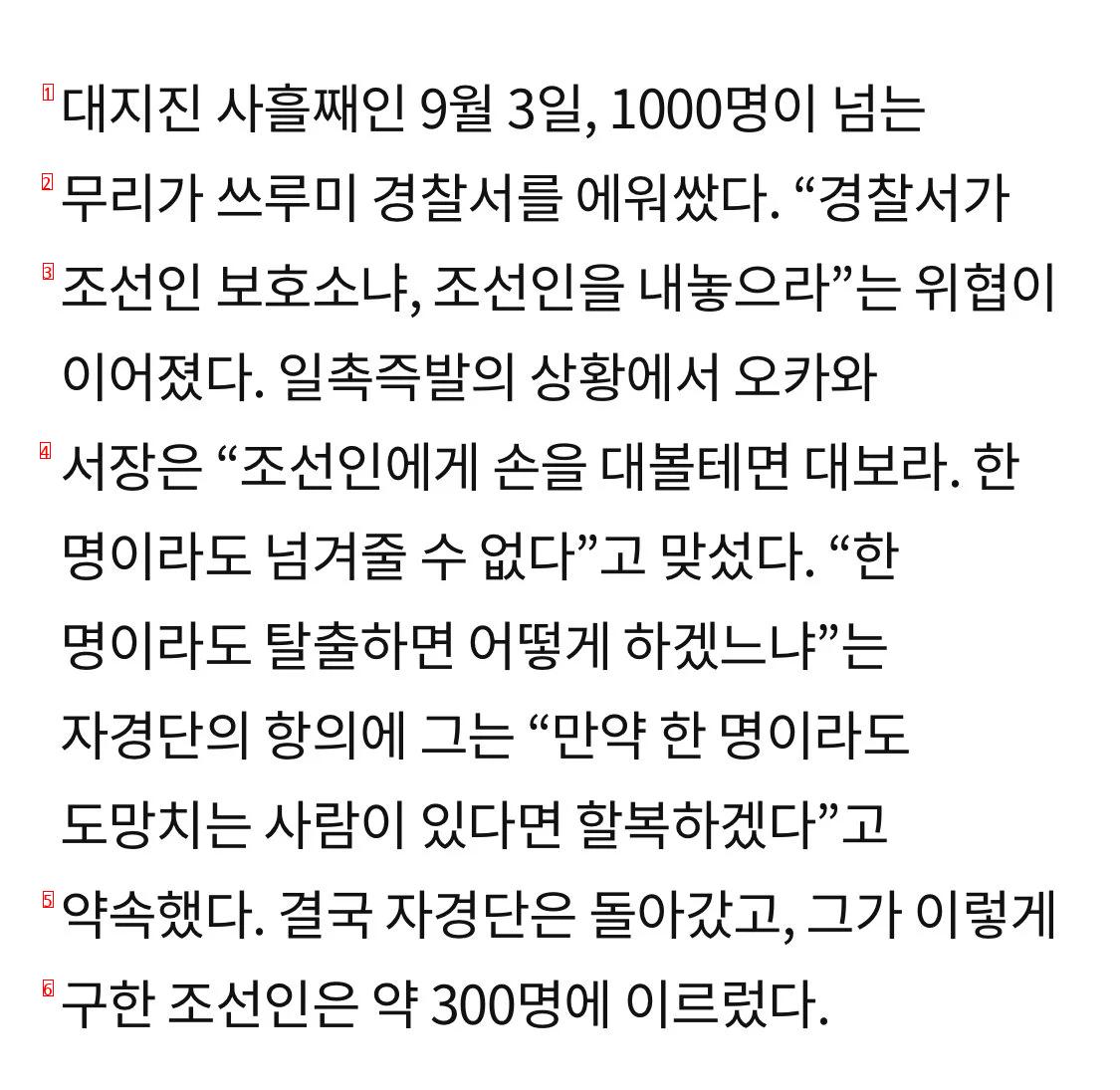
image text translation
(2)The police surrounded Tsurumi Police Station
(3)The threat continued, “Are you a shelter for Koreans or give up Koreans?” Okawa in a flashpoint
(4)The chief countered, “If you touch the Joseon people, you can’t hand over even one person because it’s Daebo.” In response to the vigilante’s protest, “What would you do if even one escaped?” he said, “If even one escaped, I would surrender.”
(5)I promised. Eventually, the vigilante went back, and he was like this
(6)About 300 Koreans were saved
(1)In addition to police records, there were records of his track record at the time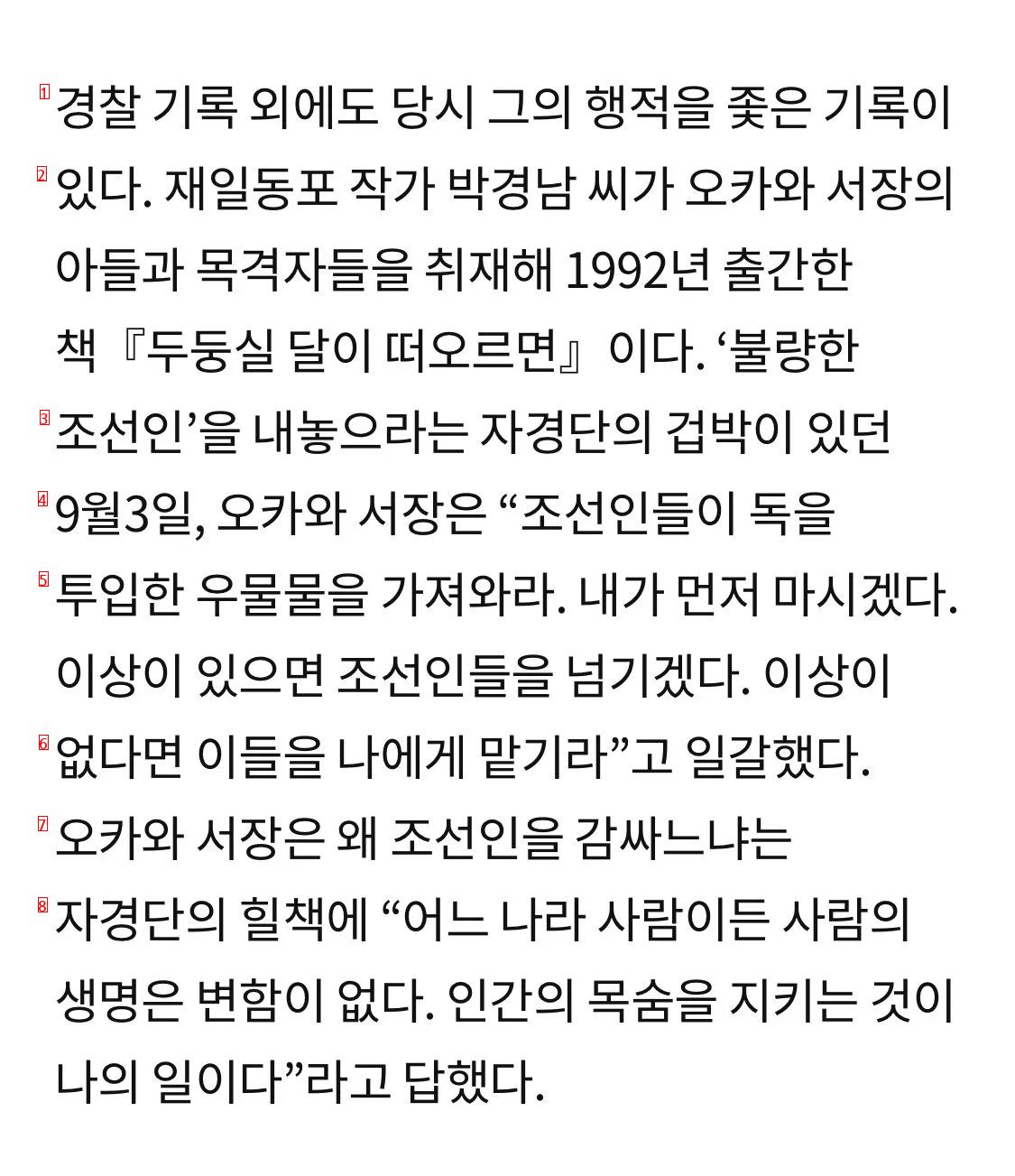
image text translation
(2)There is! Park Kyung-nam, a Korean-Japanese writer, covered Chief Okawa’s son and witnesses and published a book in 1992 called “When the Moon Rises,” which is bad
(3)There was a threat from the vigilante group to give up the Korean people
(4)On Sept. 3, Okawa said, “The Joseon people took poison
(5)Bring the water from the well. I’ll drink it firstIf there’s something wrong, I’ll pass over the Koreans
(6)If you don’t have it, leave it to me.”
(7)Okawa said, “Why are you protecting Koreans?”
(8)In response to the vigilante’s reprimand, he replied, “No matter what country people live, it is my job to protect human lives.”
(1)Kanagawa Prefecture, Japan, saved 300 Koreans during the Great Kanto Earthquake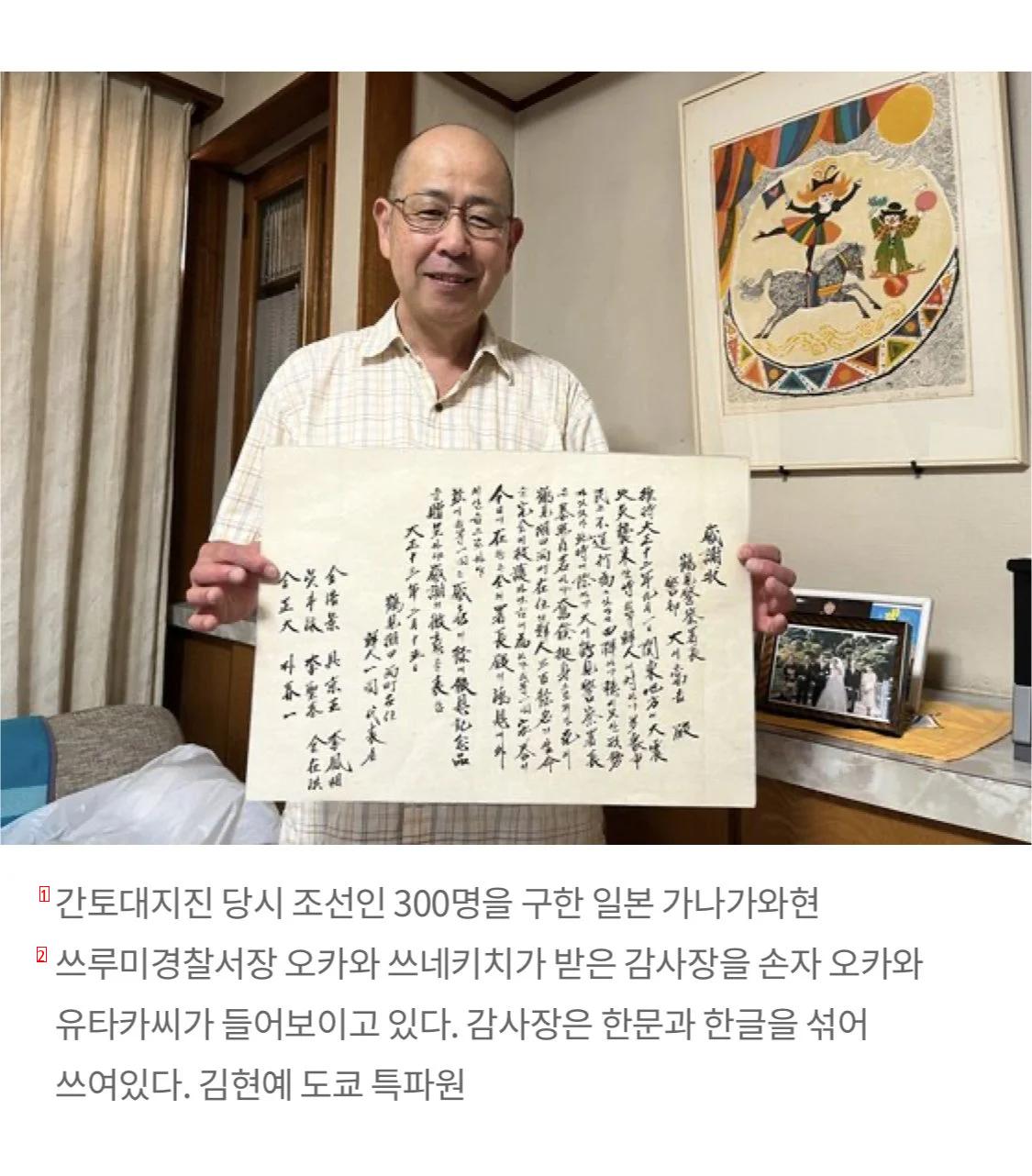
image text translation
(2)His grandson, Okawa Yutaka, holds a letter of appreciation received by Tsunekichi Okawa, the chief of Tsurumi Police Station The letter of appreciation is written in Korean and Chinese characters Tokyo correspondent Kim Hyun-yeh
(1)My grandson Yutaka Okawa, who showed me the book, said, “At the time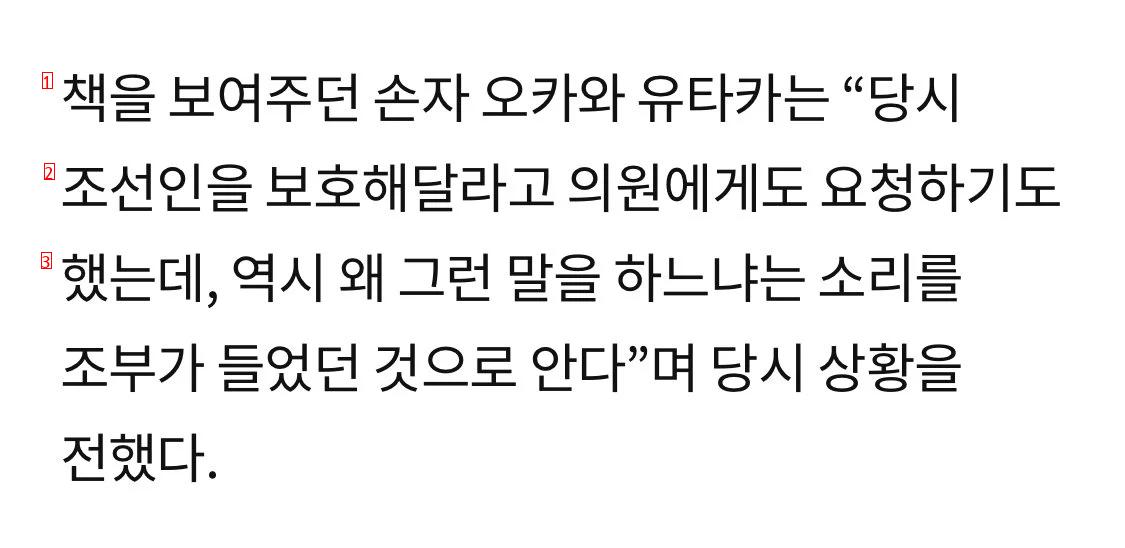
image text translation
(2)He also asked lawmakers to protect Koreans
(3)”I did, but I know my grandfather heard why I said that,” he said, conveying the situation at the time
(1)He said, “My grandfather visited four police stations in Kanagawa Prefecture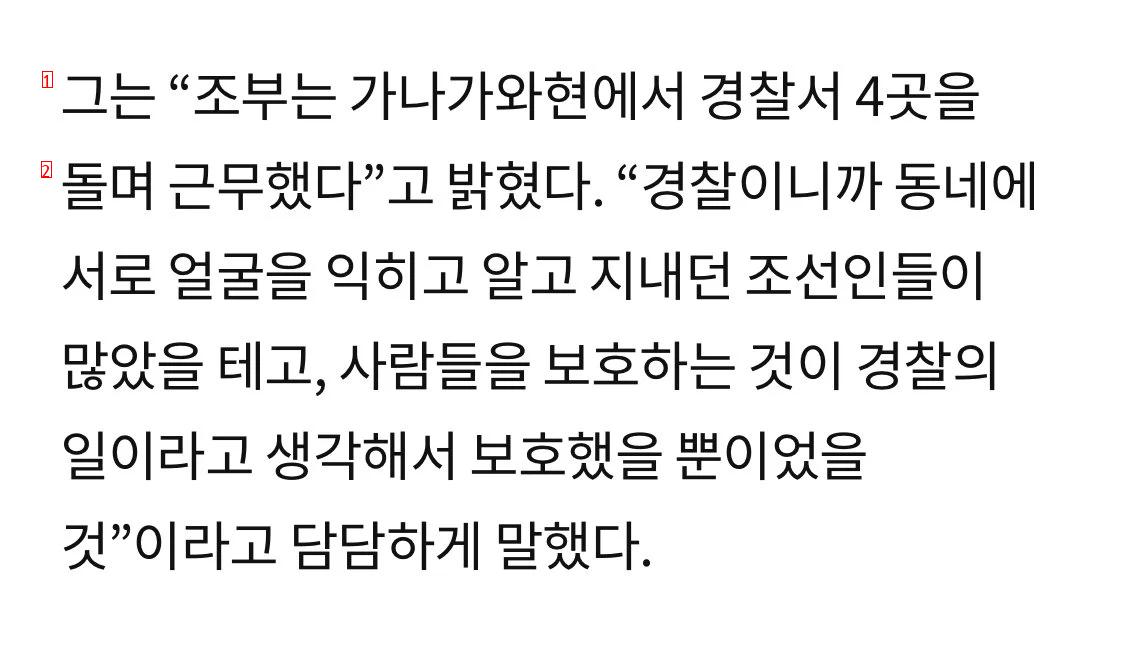
image text translation
(2)”I worked around,” he said. “Since I was a police officer, there must have been many Koreans who knew each other in the neighborhood, and I only protected them because I thought it was the police’s job to protect people.”
(1)The day left as a treasure picture of the Okawa family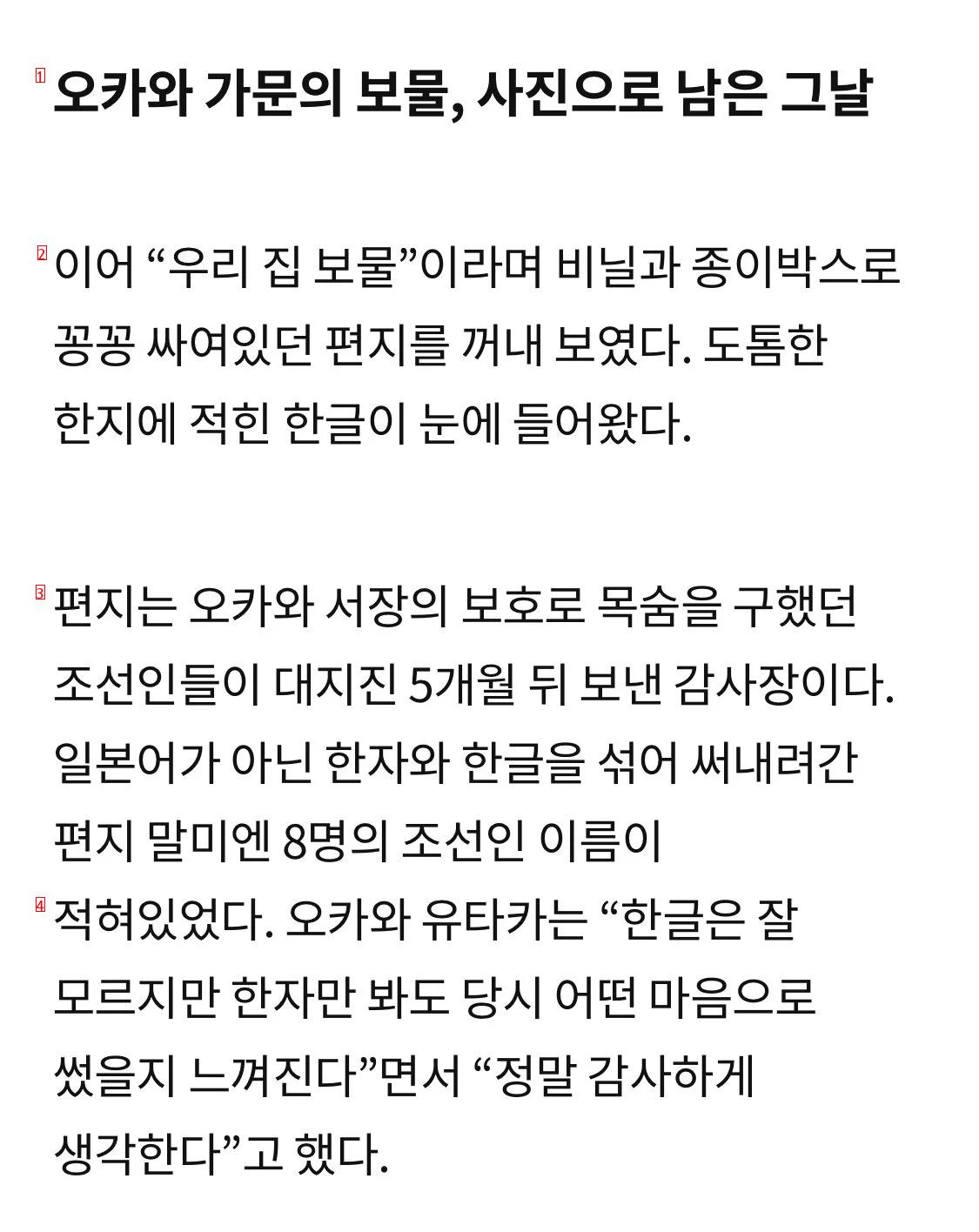
image text translation
(2)He then took out a letter that was wrapped in plastic and paper boxes, saying, “It’s my house’s treasure.” The Korean alphabet written on thick Korean paper caught my eye
(3)The letter was sent five months after the earthquake by the Joseon people who saved their lives under the protection of Chief OkawaAt the end of the letter, which was written in Chinese and Korean, not Japanese, the names of eight Koreans were written
(4)It was written. Yutaka Okawa said, “I don’t know Korean well, but just looking at Chinese characters, I can feel how I felt about writing it at the time,” adding, “I’m really grateful.”
(1)Kanagawa Prefecture, Japan, saved 300 Koreans during the Great Kanto Earthquake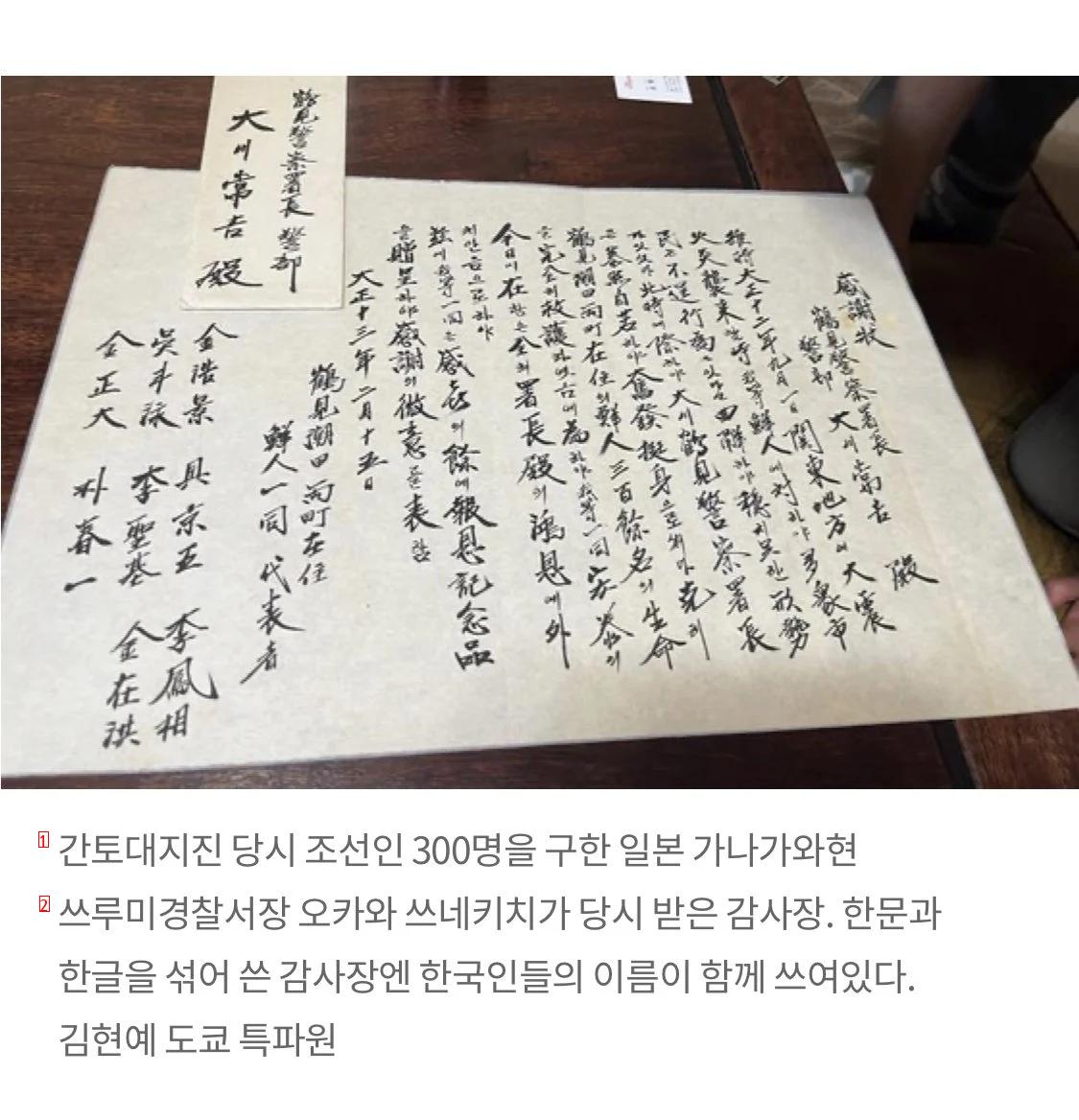
image text translation
(2)Tsurumi Police Chief Tsunekichi Okawa’s letter of appreciation received at the time, mixed with Chinese characters, was accompanied by the names of KoreansTokyo correspondent Kim Hyun-yeh
(1)The grandson who took out Chief Okawa’s old photo album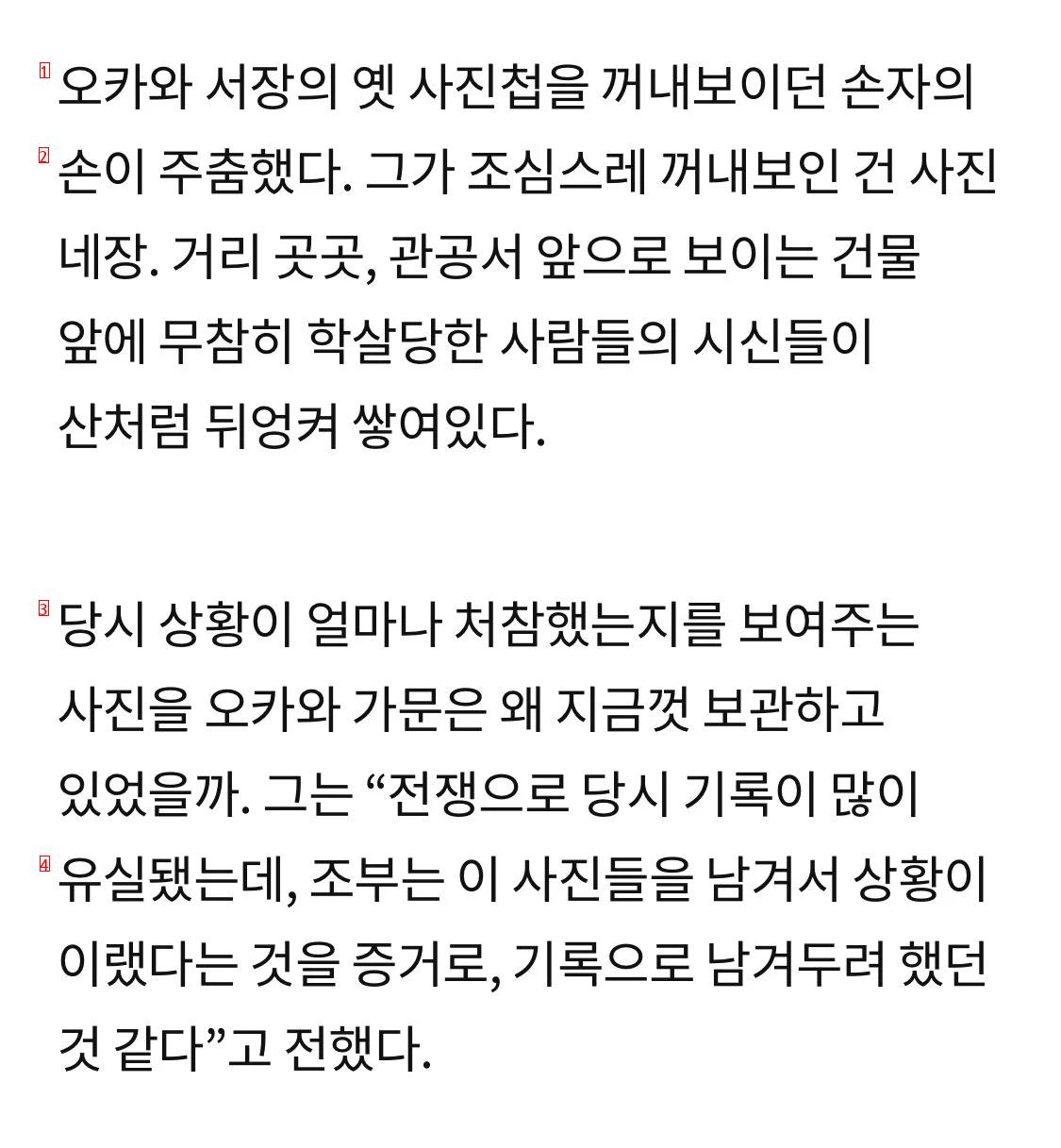
image text translation
(2)His hand faltered. What he carefully took out was four pictures of the bodies of the brutally slaughtered people piled up like mountains in front of the building in front of the government office
(3)Why did the Okawa family keep a picture of how disastrous the situation was at the time? He said, “The war caused a lot of records at that time
(4)It was lost, but my grandfather apparently wanted to leave these photos as evidence that the situation was like this.”
(1)My grandfather was a natural human being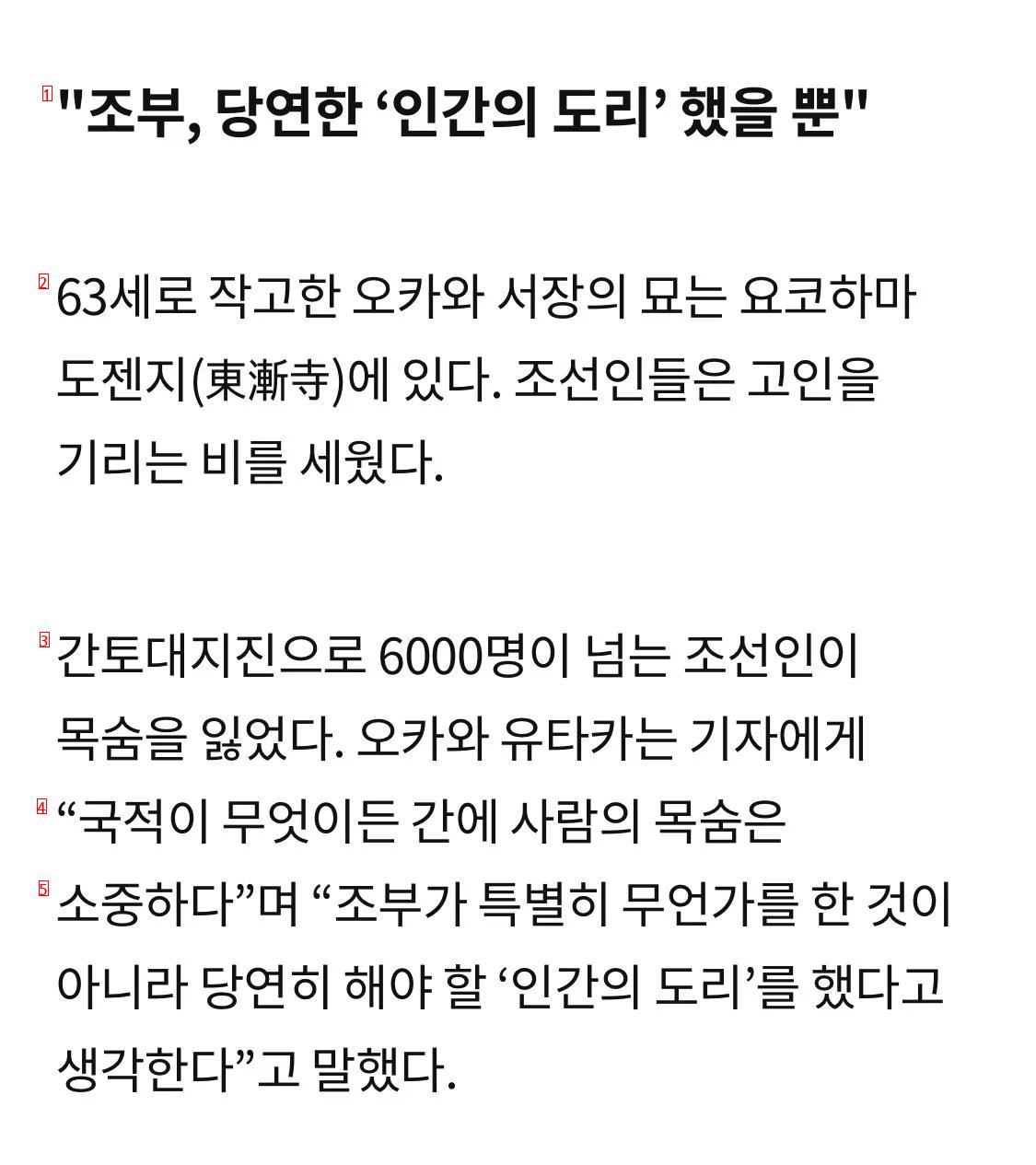
image text translation
(2)The tomb of Chief Okawa, who passed away at the age of 63, is located in the Yokohama Dozenji East Temple, where Koreans erected a monument to honor the deceased
(3)More than 6,000 Koreans were killed in the Great Kanto Earthquake Yutaka Okawa told the reporter
(4)”No matter what nationality is, a person’s life is
(5)”It’s precious,” he said. “I don’t think my grandfather did anything in particular, but did the human duty that he should do.”
Sources
httpswwwjoongangcokrarticle25189117
